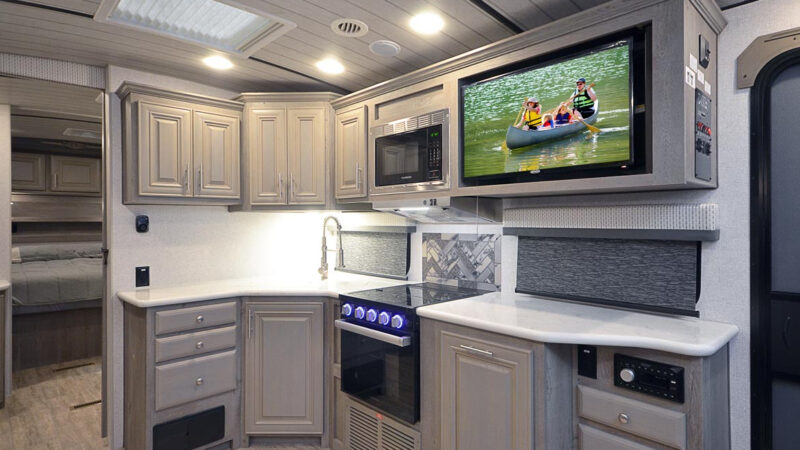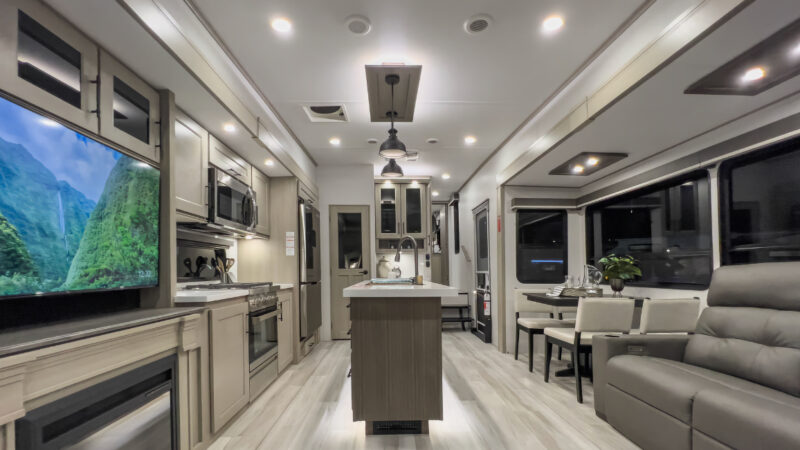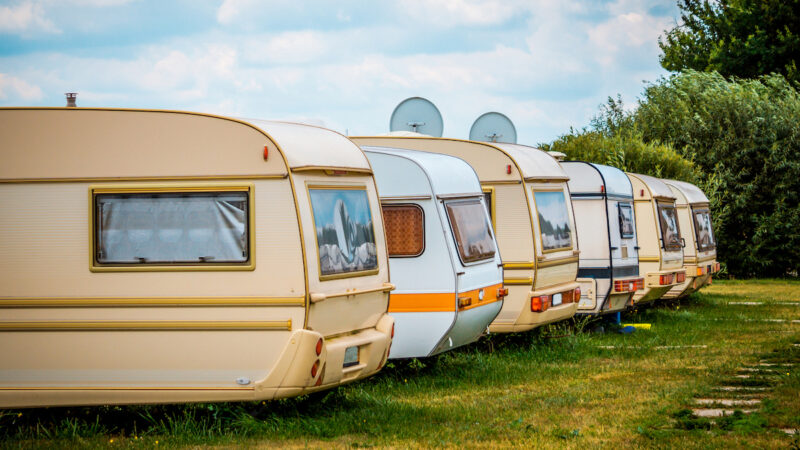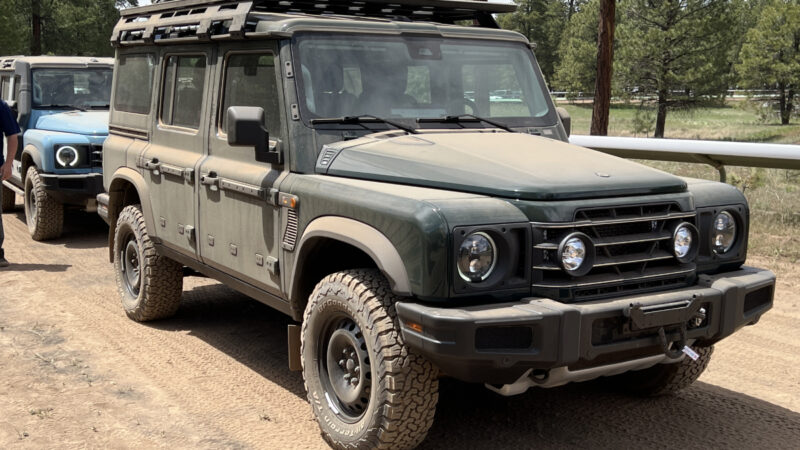Everything You Need to Go Stargazing From Your RV
Stargazing has always been a popular pastime with RVers. After all, who doesn’t enjoy sitting outside on a clear night while soaking in the views above? But if you’re just turning your eyes skyward while lounging in your favorite camping chair, you’re missing out on a lot of the fun. To truly immerse yourself in the astronomical experience, you’ll need a few additional pieces of gear, the right setting, and a healthy dose of curiosity.
This is our list of everything you need to go stargazing from your RV.
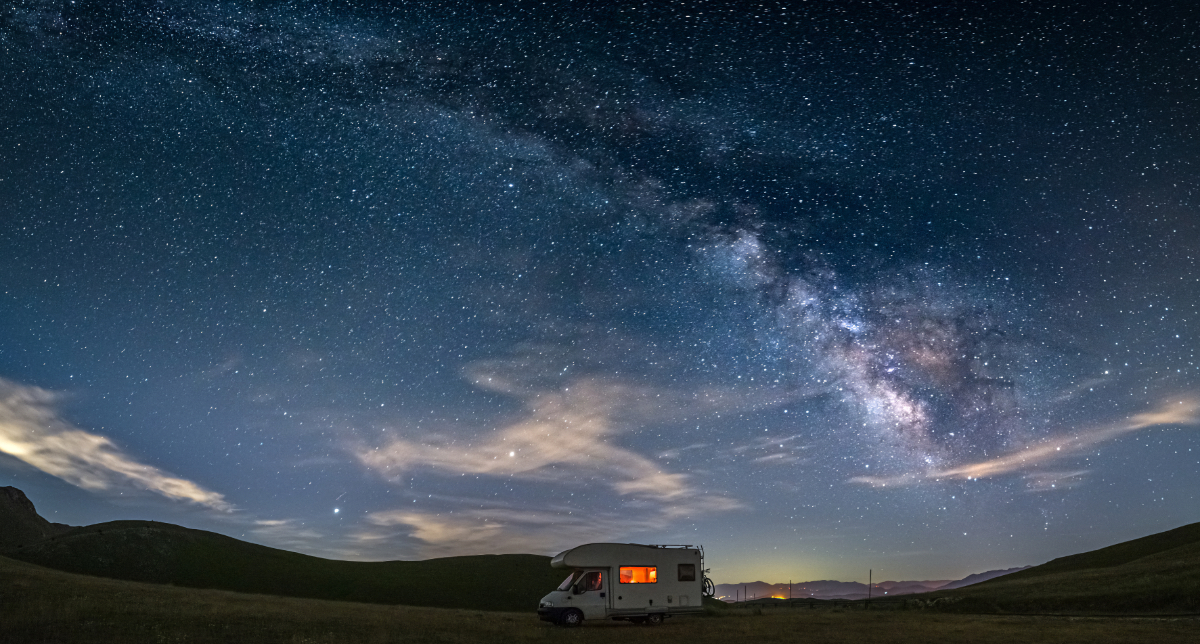
Photo Credit: fbxx/Getty
The Perfect Campsite
Ask any budding astronomer, and they’ll tell you a great night of stargazing starts with finding the right location. You’ll want to find a campsite that is as remote and as dark as possible, providing a clear view of the skies overhead. Avoid parking your rig too close to an urban setting, as city lights will prevent you from seeing all but the brightest of stars. When immersed in total darkness, the heavens come alive with light and movement that usually goes unnoticed below.
The DarkSky International Project is dedicated to keeping light pollution to a minimum so we can all enjoy looking up at the stars. The organization has even named more than 200 locations worldwide as “Dark Sky Places,” lauding them for their excellent stargazing opportunities. Many of those places are in state and national parks, with campgrounds available on the premises. Check out the list of those destinations when planning your next RV trip.
A Telescope
Watching the night skies with our naked eyes is a wonderful experience, but a telescope can really help put things in perspective. A good telescope will let you see craters on the moon, the ice caps on Mars, or even the rings of Saturn. They’ll also allow you to gaze deeper into the cosmos to spot nebula, comets, and other celestial bodies. Adding one of these instruments to your RV will definitely enhance the stargazing experience.
Telescopes come in a variety of sizes and price points. For RVing, you’ll want to pick one that is lightweight and easy to carry but still provides plenty of power to explore the heavens. The Celestron Firstscope is an excellent beginner’s model that is highly affordable and fits nicely into any vehicle. But for more advanced features and functionality, jump up to the Orion StarBlast 102mm travel model.
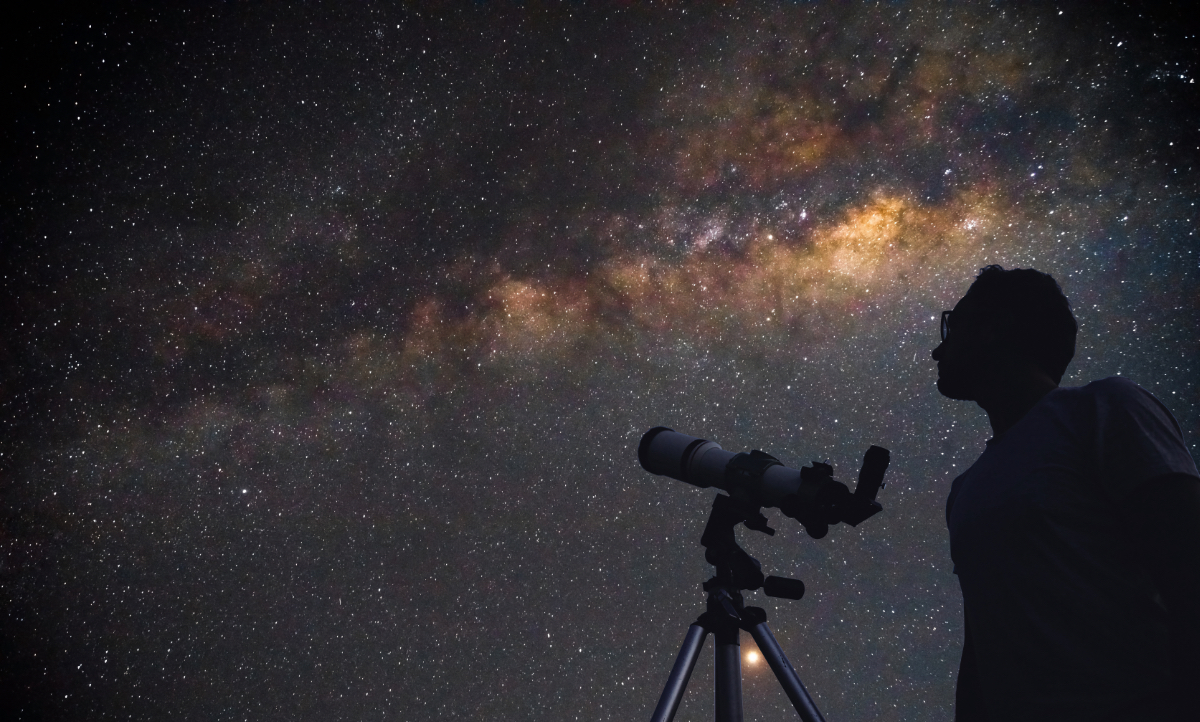
Photo Credit: m-gucci/Getty
An Astronomy App
An astronomy app for your smartphone can be a helpful tool for finding and identifying objects in the night sky. A well-designed app can point your telescope in the right direction to find interesting things overhead. SkySafari is a favorite amongst serious astronomers looking to make the most of their time outdoors. It is available for both iOS and Android but requires a paid subscription to fully access its many options. Star Chart is a good alternative with plenty of free features and a paid upgrade for those who need more functionality.
Prefer not to use a smartphone? Add a planisphere to your list of must-have gear instead.
Bring Binoculars
While usually not as powerful as a telescope, binoculars are also an excellent item to have on hand for a night of stargazing. They’ll allow others to peer into the night sky while the telescope is occupied. They’re also much easier to use when spotting satellites or the International Space Station when it goes buzzing by overhead. The Barska 80mm Gladiator model offers excellent performance and can be used to spot wildlife and admire landscapes, too. They are available through Camping World.
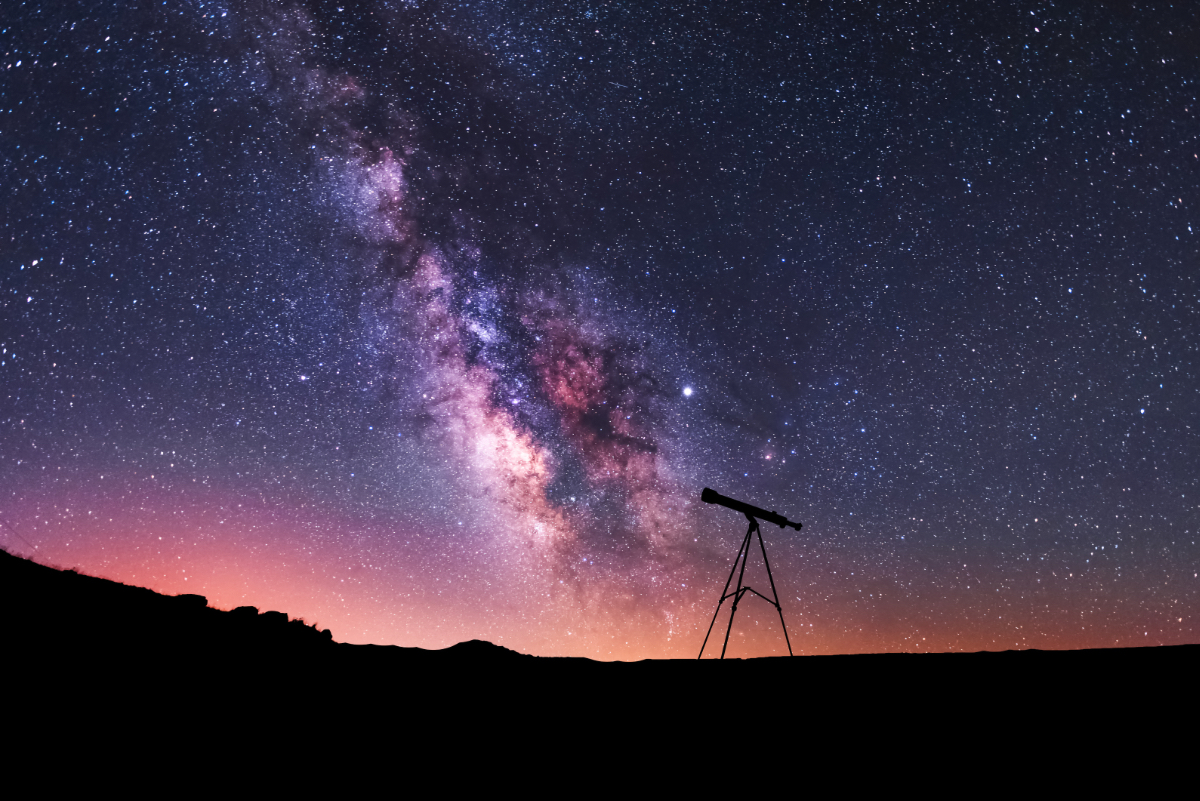
Photo Credit: Inga-Av/Getty
A Spotting Scope
Despite not having as powerful of optics as a telescope, a spotting scope is another valuable tool for stargazers. Like binoculars, a spotting scope allows others to scan the skies while they wait for their turn on the telescope. Some models are even powerful enough to provide good images of planets, moons, and other objects moving across the night sky. They even make an excellent complementary device to a telescope when used properly. The Ultima model from Celestron is a particularly solid option.
A Headlamp with a Red Light Mode
Flashlights are handy for finding your way in the dark, but a good headlamp is always a better option. These handy devices illuminate the campsite or trail, helping you safely navigate the landscape while leaving your hands free for other activities. But white light can be harsh in a dark setting, which is why experienced astronomers prefer using red light instead. Fortunately, many headlamps—like the BioLite HeadLamp 325—offer a red mode to minimize the impact on our natural night vision.
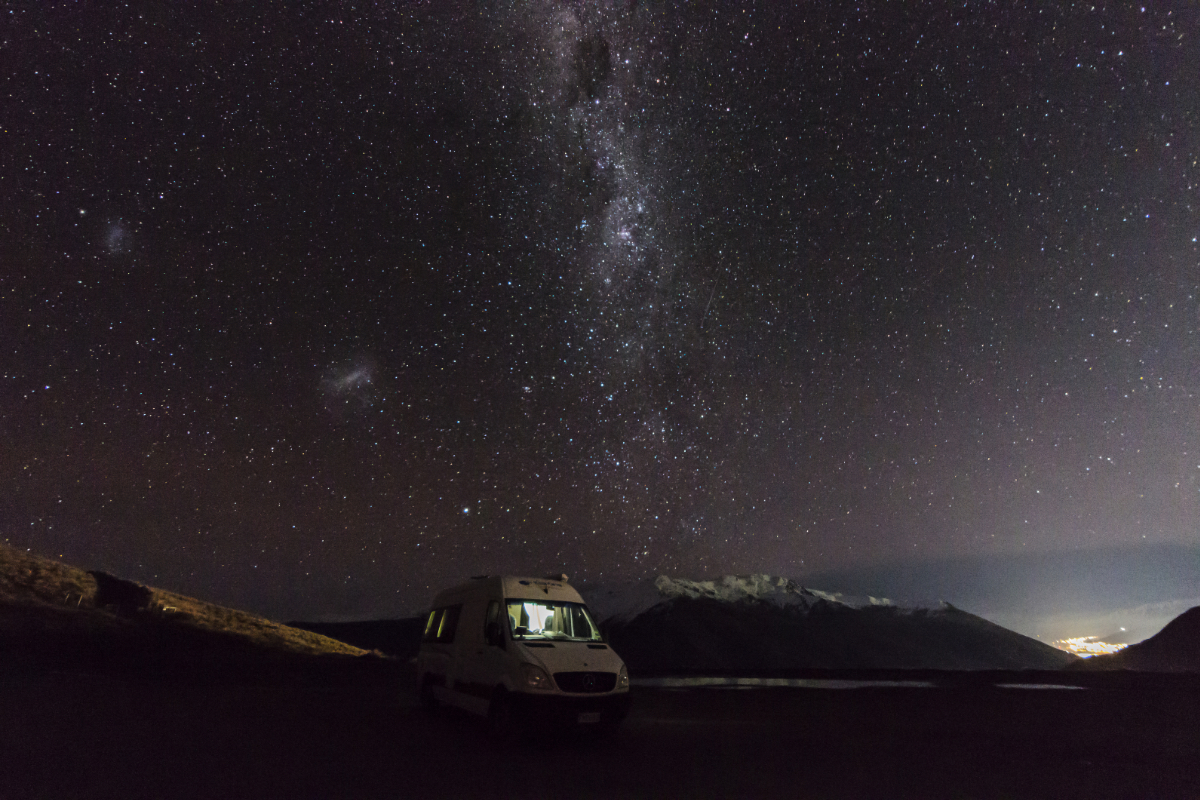
Photo Credit: AlexanderRamjing.com/Getty
A Warm Blanket
Stargazing on a summer night is usually warm and comfortable, but in the shoulder seasons of spring and fall, the temperatures can be much more unpredictable. That’s why you should always bring a warm blanket to wrap up in if the conditions get chilly. Our favorite outdoor blankets are made by Rumpl. These wonderful quilts resemble a down jacket and are warm, comfortable, and easy to pack. They are available in several different sizes and a stunning array of colors and patterns. A Rumpl blanket is so cozy, you’ll love snuggling up in one in your RV, too.
Bug Spray
Insects aren’t a problem during the cooler months of the year, and they tend to be less active later in the evening. Still, you don’t want to get caught outside after dark without a repellant of some kind. Mosquitoes and other biting bugs can be annoying enough to spoil the entire outing unless you have something on hand to keep them at bay. We suggest investing in a can of Repel, which is available from Camping World.
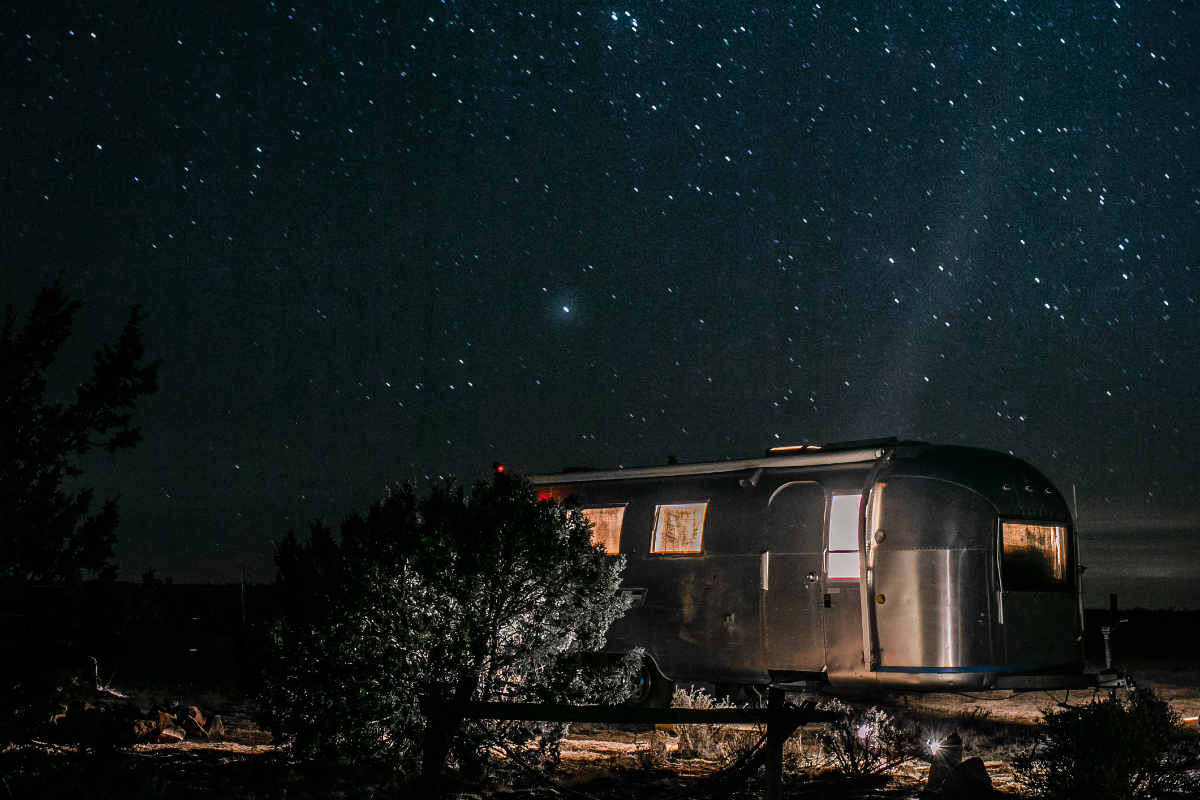
Photo Credit: denniskrischker.de/Getty
Convertible Gloves
On chilly nights, bring a pair of convertible gloves to help keep your hands warm. This style of glove allows you to expose your fingers when interacting with a touchscreen or making minute adjustments to your telescope while still providing protection from the cold. Lightweight options are available for cooler temperatures, while heavier versions may be necessary on colder winter outings.
Snacks and Drinks
If you’re spending the evening looking up at the stars, chances are it could end up being a long night. Bring your favorite snacks and drinks to help keep your energy up. That can include cold beverages in the summer, while in the winter, a thermos filled with hot chocolate will help keep the chill away.
In addition to bringing these items on your stargazing adventure, be sure to dress appropriately for the season. In the summer, you’ll want to wear cool, lightweight clothing, while in the spring and fall, you may need to turn in your shorts for long pants and bring a jacket. During the winter, using a proper layering system will make all of the difference, keeping you warm even when the mercury drops well below freezing. Remember, it’s all about staying comfortable and enjoying your time outdoors.
The post Everything You Need to Go Stargazing From Your RV appeared first on RV.com.
Source: https://www.rv.com/gear-accessories/everything-you-need-to-go-stargazing-from-your-rv/



